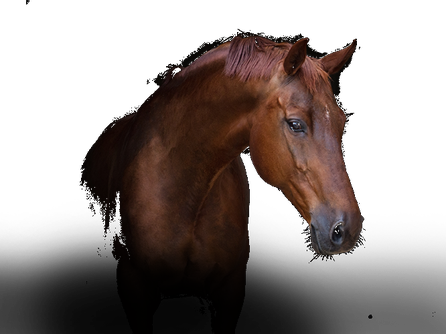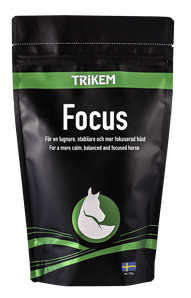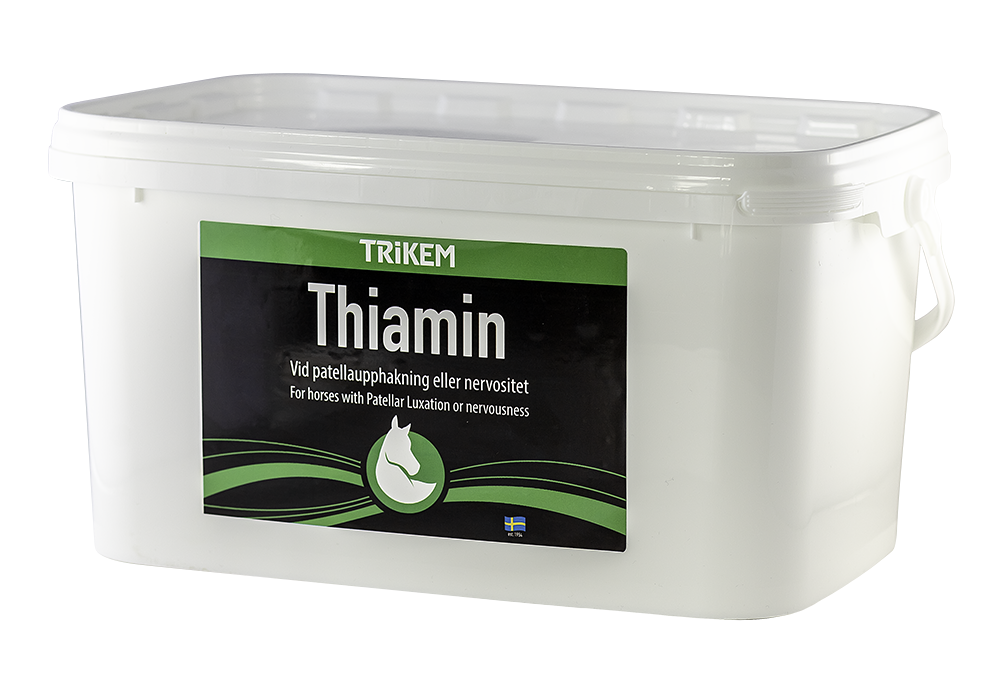Academy / Horse / Temperament
/ Stress
Stress
Many associate stress with something negative, but stress can also be positive. For the wild horse, this instinct was essential for survival.
What is stress?
Stress is a term coined in the mid-20th century by two researchers, Walter Cannon and Hans Selye. Both researchers, through experiments, concluded that pain, anger, and fear influenced the body’s hormone production, which they referred to as stress. Physiologically, stress involves a series of hormones that are released at high levels, a response that occurs in both humans and animals. Stress can occur, for example, when facing a new situation, feeling threatened, or being scared.
Fight or Flight
Our brains are wired to protect us from danger; they aim to keep us safe. In a stressful or dangerous situation, the brain reacts swiftly to prepare the body for “fight or flight,” meaning either to fight or flee. Animals react differently to these situations, and horses, as we know, are prey animals, generally reacting by trying to flee from a stressful situation.
Många förknippar stress med något negativt men stress är också något positivt. Det är den som gör att hästen kan prestera på tävling, galoppera snabbt i skogen eller komma undan när den blir rädd. För den vilda hästen var denna instinkt en förutsättning för deras överlevnad. Ett stresspåslag av den här kortvariga typen ger hästen ökat blodtryck, ökad blodtillförsel till musklerna och ökad mental styrka, tre goda egenskaper när man möter ett rovdjur och behöver fly fort och idag bra reaktioner för t.ex. en tävlingshäst.
Chronic or long-term stress, however, is harmful to the horse. It can negatively affect the horse’s mental well-being, immune system, and hinder the growth of younger horses.
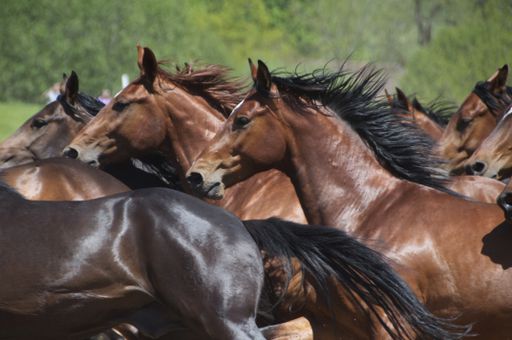
Stress hormones in the body
When a stressful situation arises, the brain’s hypothalamus signals the pituitary gland to produce the hormone ACTH (adrenocorticotropic hormone). ACTH is transported from the pituitary to the adrenal cortex, which responds by releasing the hormone cortisol. The production of cortisol then signals the pituitary to reduce ACTH production, a process known as a negative feedback loop, which results in the stress response decreasing as ACTH secretion declines. Stress also increases activity in the sympathetic nervous system, which, in turn, triggers the adrenal medulla to release adrenaline and noradrenaline.
Cortisol och chronic stress
The release of cortisol follows a daily rhythm, with the highest levels in the morning and up to 30% lower levels in the afternoon. The natural variation of cortisol levels throughout the day is controlled by sunlight and other environmental factors. To measure stress in a horse, cortisol levels in the blood are monitored. A chronically stressed horse has lost its natural cortisol rhythm and constantly maintains high cortisol levels. This can have several negative consequences, as cortisol affects the body in various ways, including raising blood sugar levels and suppressing the immune system.
Regulating stress
Dopamine
Dopamine is one of the most well-known neurotransmitters in the nervous system. Simply put, a neurotransmitter is a molecule that helps send information between cells in the body. Dopamine helps regulate feelings of joy, enthusiasm, alertness, attention, motor function, and motivation. Dopamine is often associated with pleasure and is the substance that makes both humans and horses feel good!
A horse that suffers from chronic or long-term stress can develop stereotypic behaviors, such as crib biting or weaving. Research has shown that these behaviors increase the body’s release of dopamine while simultaneously decreasing cortisol levels. A stereotypic behavior is a way for the horse to cope with stress and lower the harmful cortisol levels. This is why it’s never advisable to stop a crib-biting horse with a cribbing strap.
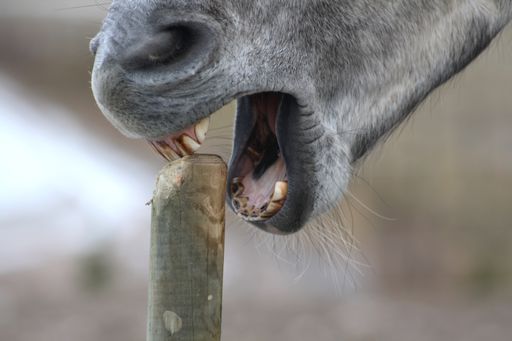
Serotonin
Serotonin plays several crucial roles in the body. It greatly affects not only the brain but also the entire central nervous system. Serotonin significantly influences the digestive system and blood circulation. Because serotonin is present in so many parts of the body, it affects various behaviors, including sleep, wakefulness, learning, aggression, impulsivity, and appetite. To produce serotonin, the body needs a specific amino acid, L-Tryptophan. L-Tryptophan is an essential amino acid that the horse cannot produce on its own and must obtain through diet or supplementation.
How is this related to stress?
After a stress response, serotonin is required to bring the body back to normal levels of cortisol and other stress hormones. Serotonin is not efficiently produced when the body is under stress, which is why horses suffering from long-term stress can benefit from a supplement of L-Tryptophan to enhance serotonin production and decrease stress hormones.
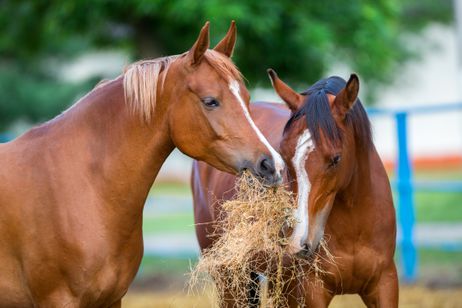
Melatonin
Melatonin is the substance that helps us sleep, essentially the opposite of dopamine. Melatonin also helps regulate blood pressure and body temperature. The amino acid L-Tryptophan, which we mentioned earlier in connection with serotonin production, is also involved in the body’s production of melatonin. If a horse is deficient in melatonin or has insufficient melatonin in relation to dopamine, the horse will struggle to wind down, and recovery will be impaired.
How can we help a stressed horse?
To reduce stress or calm a stressed horse, an increase in "positive hormones" is necessary. Many of our horses can manage this on their own, but if the horse is deficient, particularly in L-Tryptophan, this process may be hindered or take longer. In addition to L-Tryptophan, magnesium and thiamine are needed for the production of these hormones. Therefore, offering a supplement with these substances can help promote the production of "positive hormones" and provide the horse with the right conditions to reduce the stress response.

To install this Web App in your iPhone/iPad press ![]() and then Add to Home Screen.
and then Add to Home Screen.
